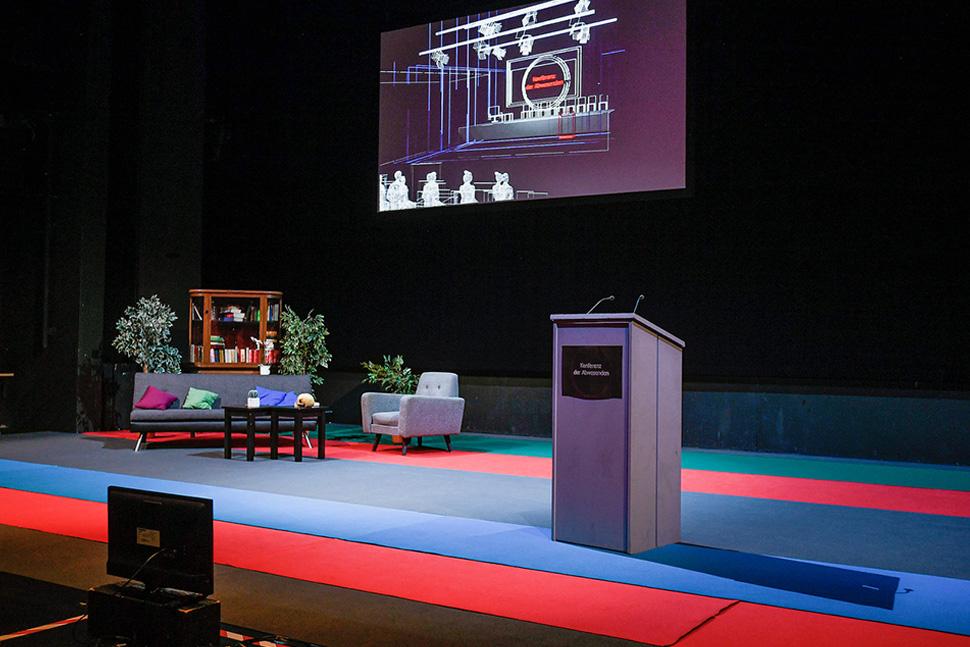An unusual Biennale Architettura in Venice is coming to an end. It became clear in 2021 that trips to international cultural events can no longer be taken for granted. An insight that has been reality for many people even before the latest crisis. This made the idea of universal participation behind 2038 – conceived before the pandemic – all the more radical. The absence of a physical exhibition stood for the absence of people, while at the same time all its contents are and will remain digitally accessible.
Now, in the Biennale Architettura 2021’s closing weekend, 2038 together with Rimini Protokoll is bringing the physical experience back to the German Pavilion. The Conference of the Absent is a theater performance, a staged conference, whose speakers were unable to attend for various reasons: travel restrictions, environmental concerns, economic unfeasibility, or simply out of concern for health. Instead, the speakers are spontaneously replaced by the attending public. In the German Pavilion, the absent protagonists of the conference are represented by visitors to the Biennale Architettura 2021 – a crisis session that uses the tools of theater to negotiate cooperation in a time of global crisis, locally and offline.
The Conference of the Absent in the German Pavilion takes place within the framework of Performing Architecture, a program series organized by the Goethe Institute as part of the 17th International Architecture Exhibition – La Biennale di Venezia.
Venue: German Pavilion, Giardini della Biennale
Hours: 11 am - 1pm / 3 pm - 5 pm
Concept / Text / Direction: Rimini Protokoll (Helgard Haug, Stefan Kaegi, Daniel Wetzel)
Video and Light Design: Marc Jungreithmeier
Music: Daniel Dorsch
Research / Dramaturgy: Imanuel Schipper, Lüder Pit Wilcke
Production Management: Epona Hamdan
Dramaturgy Assistance: Sebastian Klauke
Directing Assistance: Lisa Homburger, Maximilian Pellert
A production of: Rimini Apparat
Coproduced with: Staatsschauspiel Dresden, Ruhrfestspiele Recklinghausen, HAU Hebbel am Ufer (Berlin) and the Goethe Institute.
The concept was supported by the Federal Agency for Civic Education (Bundeszentrale für politische Bildung).
2038 was initiated by Arno Brandlhuber, Olaf Gravert, Nikolaus Hirsch, and Christopher Roth.
Image Credit: Sebastian Hoppe


